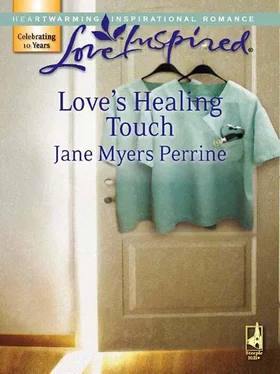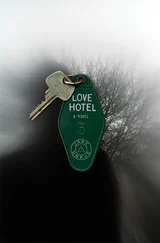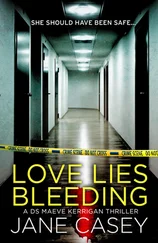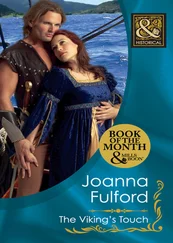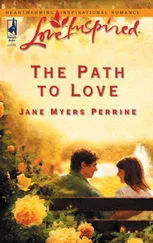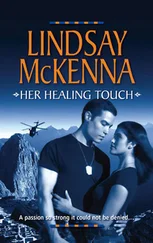“Just go.” She waved as he ducked out the door.
“Ana, is that you?”
Hearing her father’s voice from the kitchen, she hurried toward it. “Hi, Papi.”
Her father sat at the table doing a crossword puzzle. He and Enrique looked so much alike. Both six feet tall and slender. Her father had streaks of white in his still-full, dark hair. Before her mother’s death almost a year ago, he’d been a quiet and often moody man. Since then, he’d retreated deeper, lost any spring in his step and his shoulders were more rounded. He was still a handsome man but not a happy one, as much as he tried to hide it.
“What’s a five-letter word for hackneyed? Ends in an E.”
“How ’bout stale or trite?”
“Those might fit.” His pen hovered over the folded newspaper.
She pulled an apron from the pantry, tied it around her, and continued to watch her father. He was always doing puzzles. Crossword and Sudoku and anagrams. He had a basket by his chair with puzzle books in it and spent most of his time at home solving those puzzles. He’d become a hermit.
“Papi, you have to get out more.” She picked up a dishrag and squirted detergent on it. “Let’s go to a movie next Saturday.”
He didn’t answer, just stared at the crossword clues.
The kitchen cabinets were dark walnut; the linoleum floor that was supposed to look like bricks was well-worn. This place felt a lot more like home than the tiny efficiency she’d recently rented a few blocks from the hospital and spent so little time in. She squeezed out the dishrag and started cleaning the white tile counters.
When she finished, she said, “I thought I’d fix enchiladas tonight.” She pulled down a jar of tomato sauce. Her mother had always made her sauce from scratch, with real tomatoes, but this would just have to do. Except for her father, no one could tell the difference. After eating his wife’s cooking for thirty-five years, he knew homemade sauce from canned.
Ana’s philosophy about cooking was if she covered every dish with cheese and onion, they tasted great. Well, not flan, of course. Because her father was diabetic, she used low fat cheese and watched his portions although he did pretty well keeping track himself.
“Who’s going to be here tonight?”
Her father stood, held on to the back of the chair before he walked across the room. He was only sixty-one but appeared much older. A day at the store wore him out now. She’d made him go to the doctor but he said nothing was wrong with her father, not physically. How long did it take to recover from the death of a wife? Obviously, a year wasn’t enough.
“Robbie and Martita are coming with Tonito and the baby. She said she’d bring a cake,” he said.
“Luz, Quique and Raúl also?” Ana listed the other siblings who lived in Austin. Her brother Robbie, his wife and their small family were fun to be around, and Martita made wonderful cakes. “I want to be sure so I can make enough enchiladas for everyone and still leave some for your lunch Saturday.” If Quique didn’t eat them when he went through the refrigerator later.
“Well, Raúl will probably stop by. He’s between gigs.”
Raúl was always between gigs. Fortunately, he had a steady job at the family’s furniture store Robbie managed. “Is he between girlfriends?”
“I’m never between girlfriends,” Raúl said as he came in from the garage.
“Oh, yes, I know. Women always throw themselves at you. Poor dears.” Ana pulled tortillas from the fridge. Store-bought tortillas, another shortcut her mother would never have considered.
“¿Cómo no? Why not? They can’t resist my smile or my guitar.”
What was he going to do in the future? Raúl floated through life, making it on his dark good looks, great smile and personality, plus a dab of talent.
“Hey, Ana, no te preocupes. Don’t worry.”
“Why would I worry about you?” She took out a slab of white cheese and began to grate it.
“Because you always worry about me and Luz and Quique. We’re all young.” He pulled one of his guitars from the hall closet and came into the kitchen. “We’ll grow up someday.”
Ana rolled her eyes. “I hope so.”
“We’ll never be as responsible as you are.” He ran his fingers over the strings. “After all, you were born responsible, but you don’t always have to worry about us.”
“Yes, she does, Raúl.” Her brother Robbie followed his five-year-old son, Tonito, into the kitchen and placed a cake on the counter. “That’s what Ana does. Worries about her family. She’s a rescuer.”
“Someone has to do it,” Robbie’s wife, Martita, said. “It’s a full-time job. I refuse to take it on.” She handed Marisol, the baby, to Robbie and sat at the kitchen table. “But sometime, chica, you are going to have to stop taking care of your family and find a life of your own.”
A life of her own? An interesting concept. Taking care of her family was, well, habit—one she’d never tried to break until she realized how dependent her father was getting on her. That, and the short drive from her little efficiency to the hospital were the reasons she’d moved. Not one to make changes easily, she felt this one was enough for now.
“You want a date?” Raúl said. “I could fix you up with some guys.”
“Thank you,” Ana said politely, but she’d never take him up on that. Although she was only twenty-eight, all his friends were years younger than she in both age and maturity.
“Don’t ever go out with any of his friends,” Robbie said. “None of them are serious about anything.”
“Why don’t you come to church with us?” Martita said. “There’s a big singles’ group there.”
Ana smiled but didn’t answer. Other than weddings and funerals, she’d seldom been to church, although Martita had often invited her to the community chapel her family attended. Ana’d never consider going to church only to find a date. It didn’t seem quite right to her.
After dinner, they gathered in the family room to sing “Adelita” and “De colores” and other family favorites. Raúl and Quique sat on the bench by the fireplace and strummed their guitars. Her father leaned back in his blue recliner while Martita held her kids on the other recliner, the one Ana’s mother had always sat in. Everyone else relaxed on the sofa while Tonito played with his trucks on the floor.
As she watched, Ana was filled with love and with a terrible feeling that this was to be her life: to watch while her brothers and sister married and had babies and the babies grew up and married. And through those years, she’d worry about them, every one of them, exactly as Raúl and Robbie said she would. Forever. She knew that about herself, too.
Sometimes, like now, she wanted more. Now that she’d reached her professional goal, she needed to look ahead. What she wanted now was a family of her own.
Odd—she hadn’t thought about marriage for a long time, not since high school when Tommy Schmidt had wanted to marry her after graduation. Her drive to be a doctor had broken up their relationship. There hadn’t been anything serious since. Oh, she’d dated, but she’d been so wrapped up in her family, in her push to finish medical school and her need to learn everything she could, to be the best doctor possible, to finish the residency, that she’d never found time for a relationship. Hadn’t really wanted one.
Now that she was almost there, what would she do?
Was it too late for her to have a life and family of her own? If she did, she was going to have to leave the warm, comfortable circle of her family and enter the world of dating. The whole idea bothered her. She wasn’t good at flirtation or chatter, and her intensity frightened men.
Читать дальше
